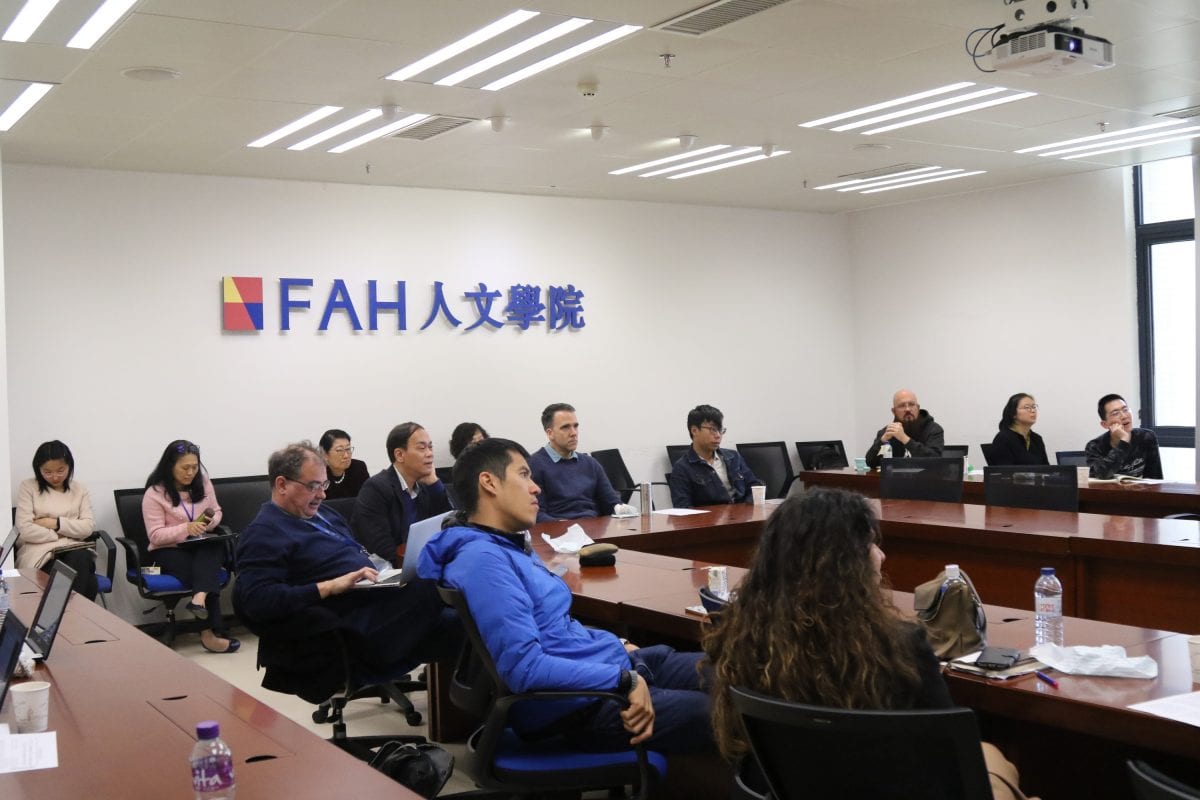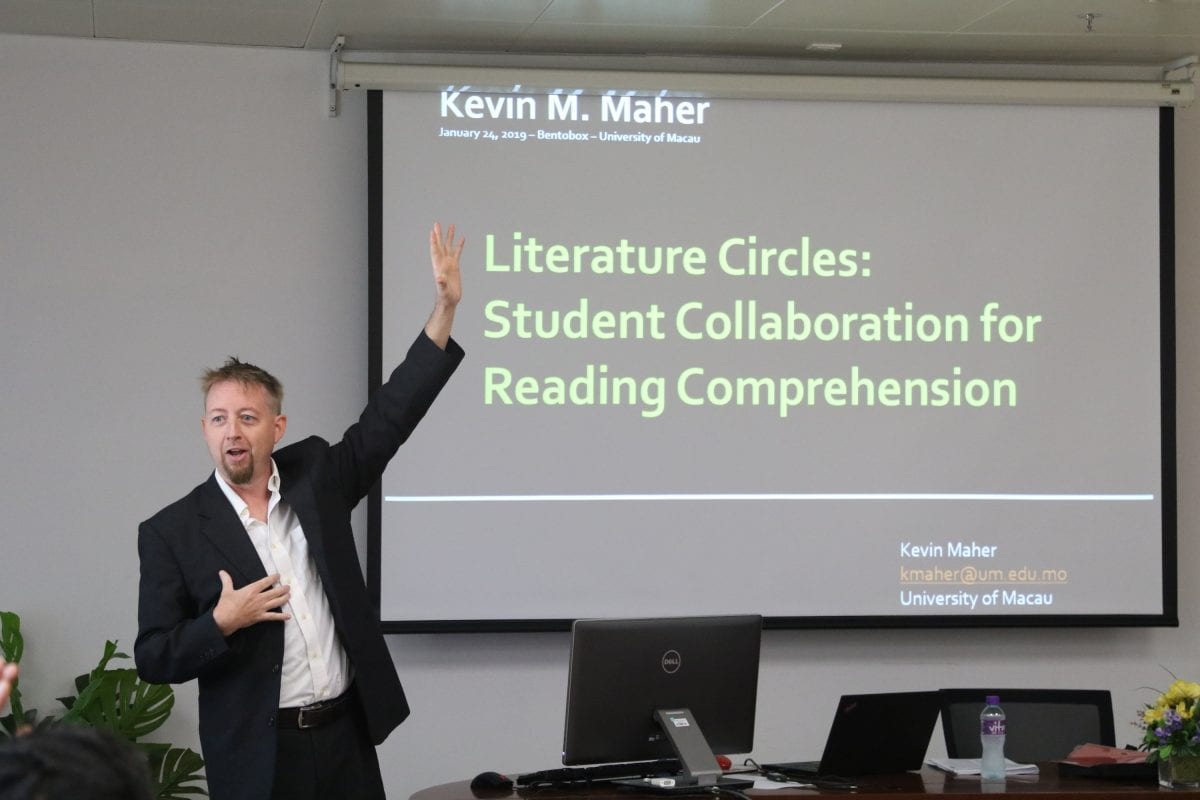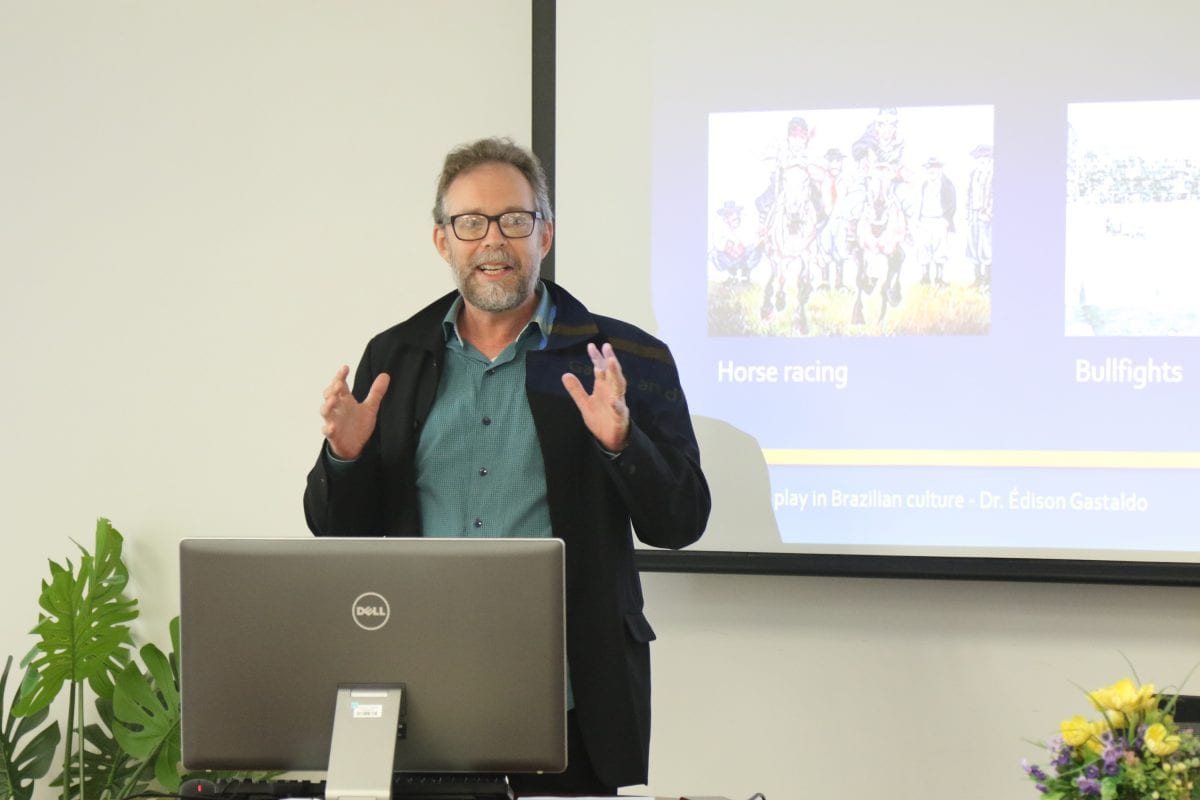The fourth FAH Bentobox session of the 2018-2019 academic year was held in our faculty on the 24th January. The session attracted around 25 participants who brought many interesting questions and contributed to fruitful discussions. This time we had Mr. Kevin Maher (English Language Centre) and invited-speaker Prof. Edison Gastaldo (Centre for Personnel Studies, Fort Duque de Caxias, Brazil) as speakers.
Kevin’s paper introduced some important concepts on how to use reading activities to promote cooperative work inside a language class. He shared his experiences on how to engage students in many different tasks through the reading and discussion of literary texts in English. Kevin carefully explained his methodology by showing a list of roles that he assigns to each student in a group before the reading activity starts. Then students will have to read the story with a specific perspective (such as the visualizer, passage person, discussion leader, real life connector, etc.) depending on the role to which they were assigned. According to Kevin, this practice helps students realize that they have to read the text for a social purpose and can motivate them to speak and participate more during the discussions. Moreover, practices such as the one described by Kevin can keep the students in the target language, since they get engaged with the story by pointing to passages to support their arguments, questioning each other on the meaning of certain uses, and guessing the meaning of unfamiliar words from the context (without the need to go to dictionaries or list of words). Another positive effect raised by Kevin is that students can gradually start to develop the abilities to do things they couldn’t do without help, since the cooperative work gives the students experiences that they are within zones of proximal development, thereby encouraging and advancing their learning as skills. Finally, Kevin also talked about the challenge – but also the advantage – to work with fictional texts about social dilemmas and emotional conflicts; and how these texts can demand responses and value judgment from readers. According to Kevin, this can involve students with the language (and with the cultures of the language) they are learning as well as corroborate Stephen Krashen’s theory on authentic and meaningful input.
Edison’s talk on football in Brazilian culture was opened with a brief history of games and play in Brazilian society. Some rituals and early forms of entertainment spread throughout the country between 15th and 19th centuries were introduced, such as log racing (in north and central Brazil), the Kuarup ritual (Xingu River Valley), horse racing and bullfights (brought by the Europeans), cockfights, capoeira (African-American origin game) and jongo (also from African-American origin which later gave birth to the samba). After that, Edison explained the rise of modern sports in Brazil by talking about the establishment of the first rowing and football clubs in the country (at the end of the 19th century). At the outbreak of modernity, explained Edison, the press turned football into a mass phenomenon and then social stratification started. Black players were not socially accepted and had to face a lot of prejudice before being recognized as ‘real professionals’. At that time, clubs that accepted black players were considered more popular and usually labeled as ‘clubs of the masses’ or ‘clubs of the poor’, while middle-class clubs that only accepted white players were labeled as ‘the rice powders’. Then Edison talked about contemporary problems in Brazilian football: the primacy of capital or ‘the assault on organized fans’, led by big enterprises such as Nike, CBF and the media, such as Globo TV station; the gentrification of World Cup stadiums (since 2014); and the increase on the ticket prices. All these problems, according to Edison, ‘motivated’ Brazilians to invent new types of entertainment (based on football) such as ‘the pelada’ (‘bricolage football’), table football, foot-volley, and ‘altinho’ (a collaborative form of playing to control and keep the ball in the air). Edison concluded by explaining that culture always shows resilience to re-invent itself into new forms of socialization.
This was the first Bentobox of the spring semester of 2018-2019. The next one will be held on 14 March, with Prof. Younhee Kim (Department of English) and Prof. Gabriel Antunes de Araujo (Department of Portuguese) as speakers.
Looking forward to seeing you there!




